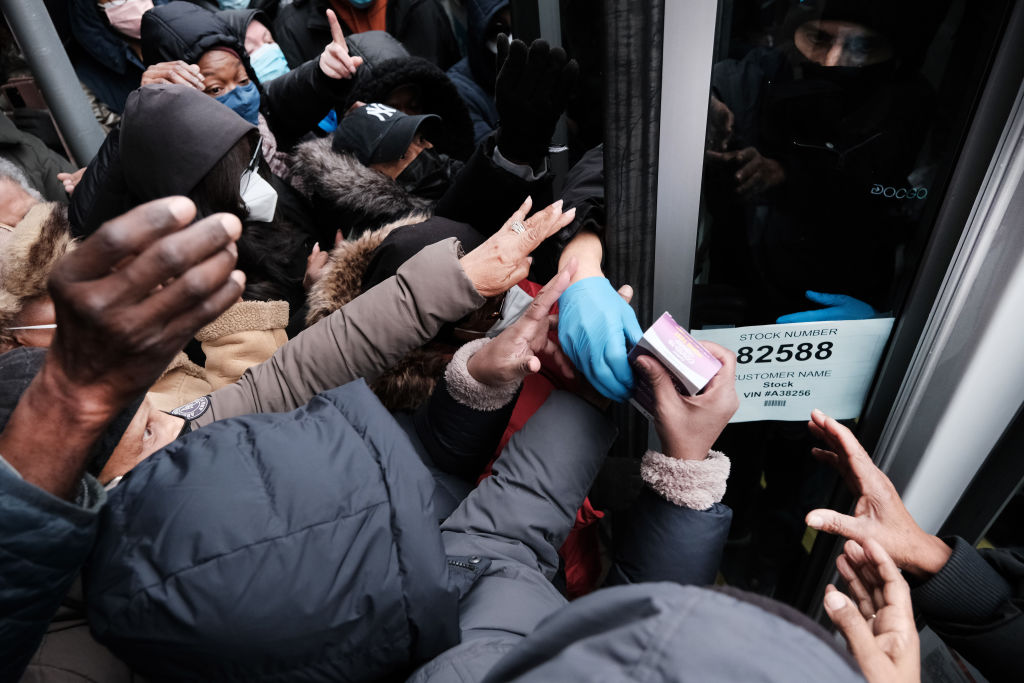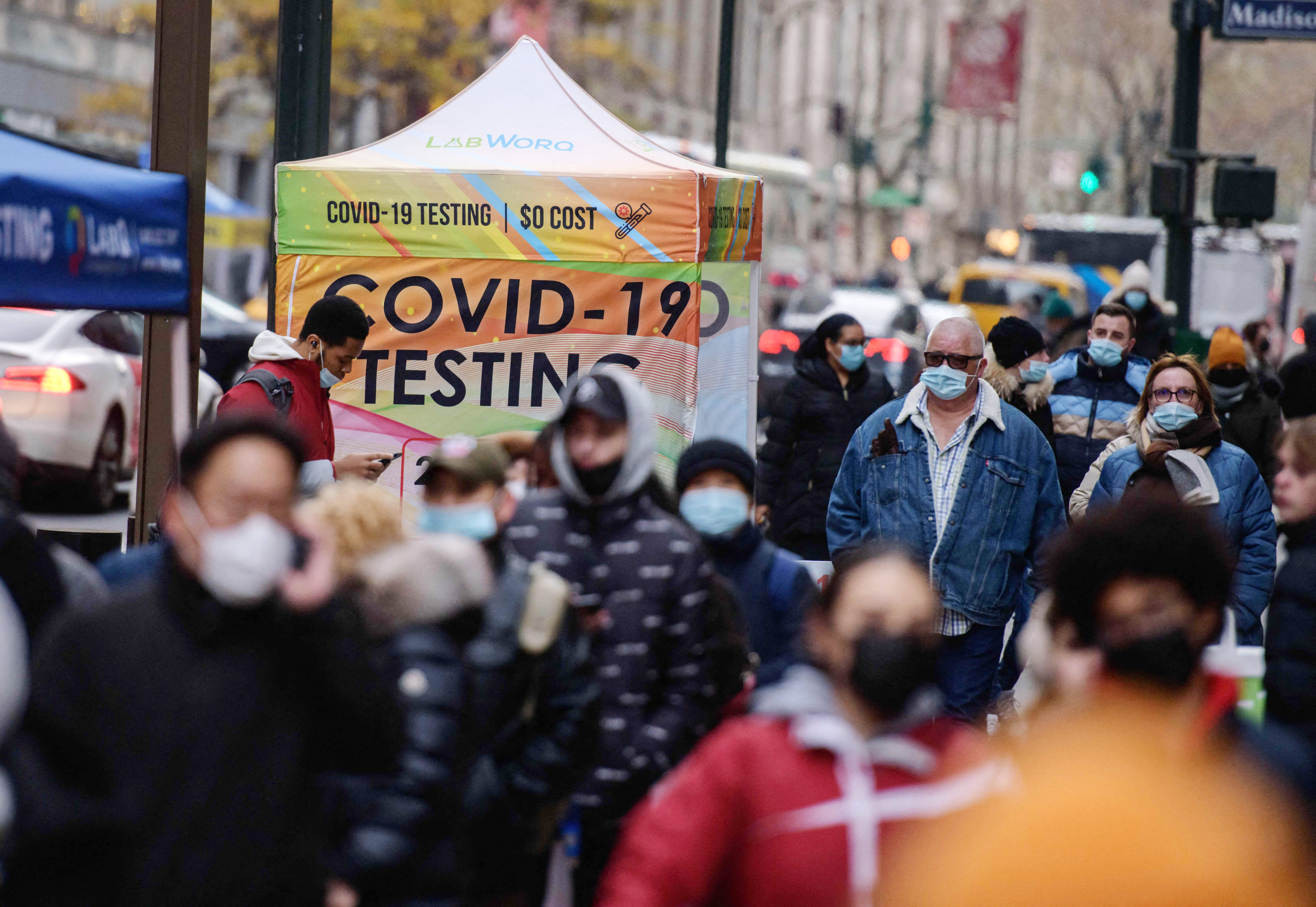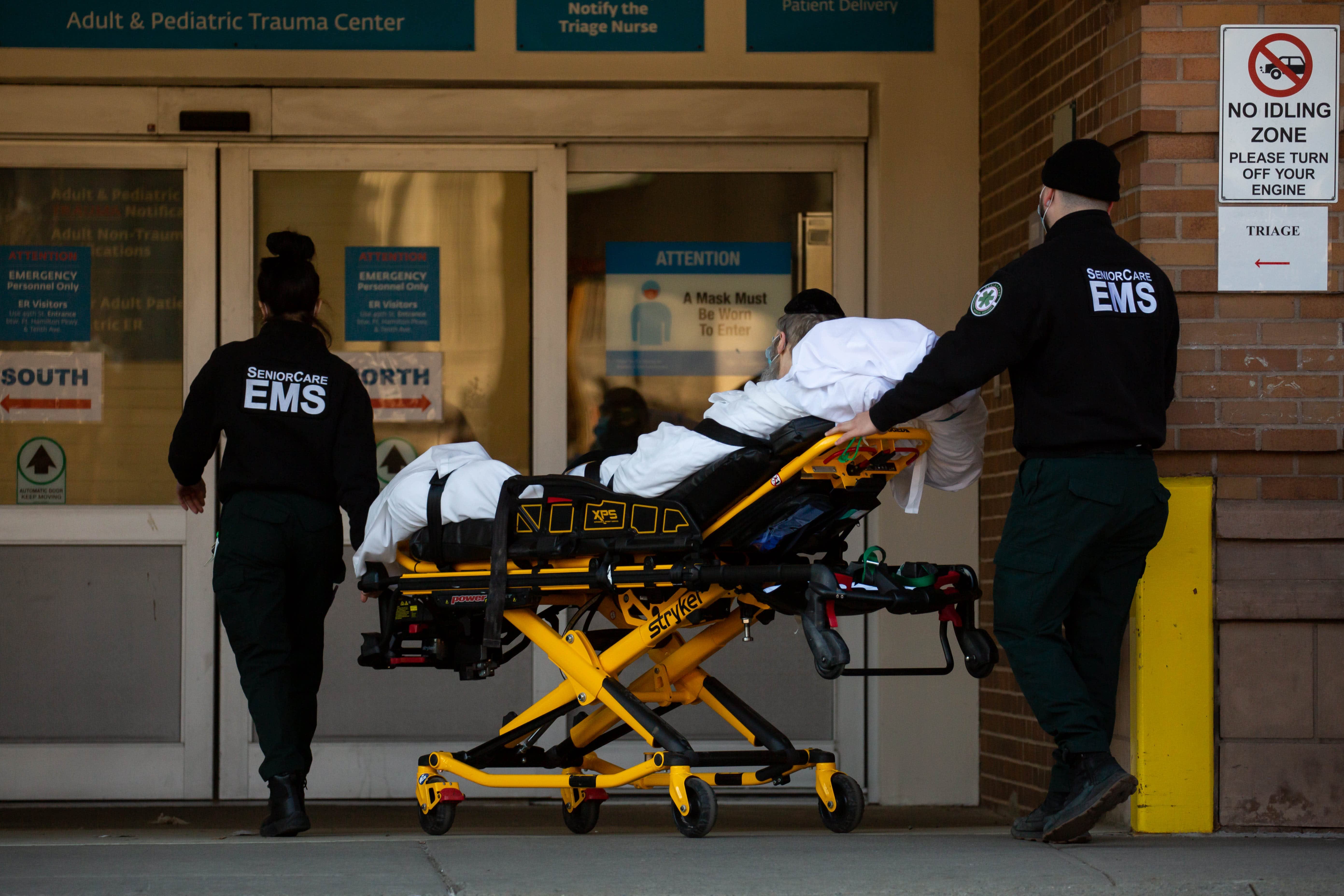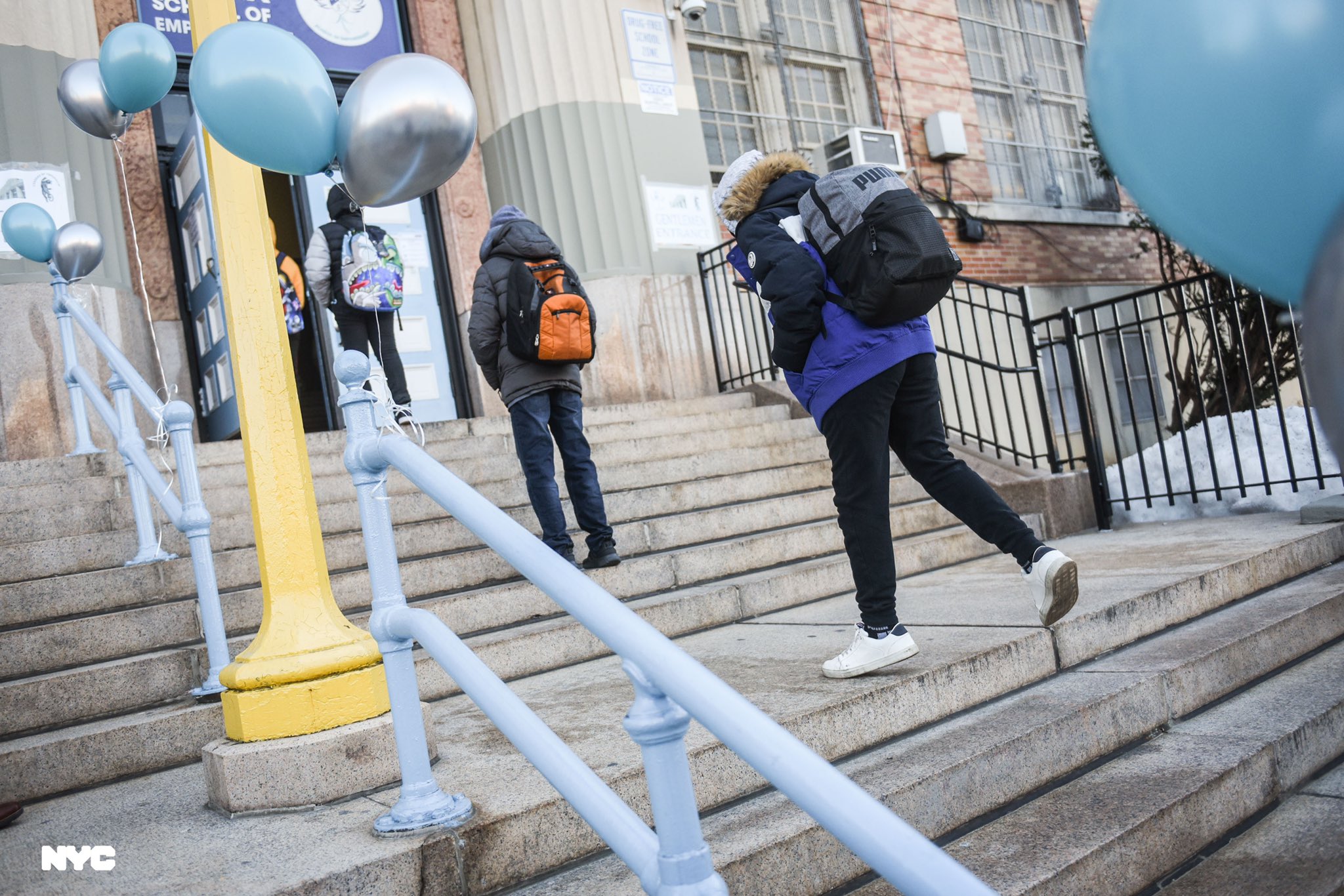What to Know
- New York state smashed its single-day COVID case record Wednesday, reporting a total of 67,000 new positives, a 64% increase in the last day. Nearly 20% of the 362,000 some tests statewide were positive
- Virus hospitalizations are at mid-February levels and climbing, with NY reporting 6,700 patients as of Wednesday, a 10% increase in the last day, and nearly triple-digit daily deaths for the first time in months
- While this intense omicron wave is expected to be shorter-lived than the delta one, Gov. Kathy Hochul says she expects a peak on all core COVID metrics next month and says the state is prepared to handle it
New York Gov. Kathy Hochul warned lower reported COVID-19 infections across the state earlier in the week likely were a result of reduced holiday weekend testing, cautioning a surge could appear mid-week as more results came in. They're in.
The state reported a new single-day high of 67,090 cases on Wednesday, a 64.5% increase in just the last day, Hochul said. The unprecedented total came amid a recent high in the number of daily tests -- 362,594 -- for a positivity rate of 18.5%.
The governor described those high testing numbers as a "very positive outcome" in that it shows the state is able to deploy sufficient resources to meet testing demand, which has skyrocketed amid this wave of omicron variant infections.
Get Tri-state area news and weather forecasts to your inbox. Sign up for NBC New York newsletters.
At the same time, Hochul reported 97 new COVID fatalities in New York, the first time in many months daily deaths have neared 100. It tops the most recent reported high by at least 20 lives and is "not the direction we want to go," Hochul said.
Hospitalizations are escalating exponentially, too, rounding out at about 6,767 total statewide as of Wednesday, Hochul said. That's a 10% increase over Tuesday's admissions and perilously close to the 2021 highs around 8,700 from January. More than 960 patients are in ICUs, with another 17 added to Wednesday's count.
For now, most hospitals are able to manage the increases, given omicron's tendency to cause milder infections among the fully vaccinated. About two dozen hospitals throughout the state have paused elective surgeries to maintain at least 10% bed capacity, but that number is down from 32 in the last weeks and stable.
"We're basically preparing for a January surge. We know it's coming. And we're naive to think it won't," Hochul said Wednesday, shaking her head at the apparent simple inevitability of the fact. "We do think there's going to be a spike in cases that's going to continue, not just in our positive rates but in our hospitalizations."
The data are almost hard to fathom -- nearly 20% of all COVID tests in the state came back positive Wednesday, and in just the last seven days, about 1.5% of all New York residents tested positive.
As Hochul said of omicron a day ago, "This is a different variant" as far as its unprecedented infectiousness and vaccine resistance.
Breakthrough infections have been particularly problematic with this strain, crippling everything from Broadway companies to transit operations, airlines and more as industries race to adopt new CDC isolation guidelines that account for both omicron's heightened transmissibility and milder cases for the vaccinated.
As of New York state's latest report, vaccine effectiveness against COVID-19 infection was 75%, meaning fully vaccinated New Yorkers had about a 75% lower chance of becoming infected than unvaccinated New Yorkers. In May, the rate was 92%. It dropped to 80% during the delta variant surge and again amid omicron.
Vaccine effectiveness against COVID hospitalization dropped to a much slighter degree under omicron (94.6% effectiveness rate, state data shows). That's a higher rate than New York saw in mid-July amid delta's peak (93.7%) and on par with early May efficacy rates against COVID hospitalization for the fully vaccinated.
The state does not separate fully vaccinated New Yorkers from fully vaccinated New Yorkers who have gotten boosters in this data set, so the data may be a bit skewed.
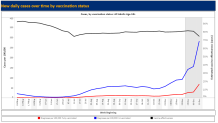
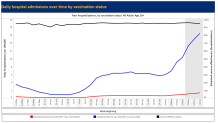
More Coverage
Meanwhile, positivity and transmission rates are soaring in New York City especially, which accounts for a significant share of all new COVID cases nationally.
Omicron has fueled unprecedented daily infections across the U.S. as well. America set a record seven-day case average on Tuesday, according to NBC News data.
The average of 262,034 daily cases eclipsed the former record set on Jan. 11 of 252,776 new cases a day. It dropped a bit, according to the CDC, to around 240,400 cases per day on Wednesday, still up 60% over the previous week.
"The rapid increase in cases we are seeing across the country is in large part a reflection of the exceptionally transmissible omicron variant," CDC Director Dr. Rochelle Walensky said in a White House briefing Wednesday. "In a few short weeks, omicron has rapidly increased across the country, and we expect, will continue to circulate in the coming weeks. While our cases have substantially increased from last week, hospitalizations and deaths remain comparatively low."
According to the CDC's most recent data , people are most infectious one to two days before symptoms appear, and two to three days after. The CDC said that it is during those five days that 90 percent of COVID transmissions occur.
The variant, the first local case of which was reported on Dec. 2, accounted for 74.2% of genetically sequenced positive New York COVID samples uploaded to GISAID, the world's largest repository of COVID-19 sequences, over the last two weeks. That's up from 73.3% a day ago, 11.1% in the two-week period ending Dec. 18 and from 2.2% in the two-week period before that, state data shows.
CDC data for the latest two weeks says omicron could account for anywhere from 70% to 97% of current infections in the New York area for the week ending Dec. 25. Nationally, the prevalence is estimated to be as high as 74%, the agency says.
Ultimately, officials say vaccinations will quell the increases in hospitalizations and deaths associated with the omicron wave -- and those metrics are a much greater concern for them than infections alone. That's why they're urging calm at this time -- and pushing vaccinations and COVID boosters for those who have to get them.
"New Year's Eve is coming. I do hope we can have a healthier next year, but we're going to be smart. New Yorkers, if we're anything, we're tough, we're tenacious but we're also smart," Hochul said Wednesday. "We're going to do the right thing by continuing to share the message of getting vaccinated, getting children vaccinated, getting the booster shots, wearing the mask, and I know I sound like a broken record but I'm going to keep repeating it because we need to remind people that this is the way out of this. We're not as vulnerable as we were this time last year."
Still, the governor acknowledges the devastating toll of these last two years as she thanked healthcare workers in the North Country region for their tireless dedication.
"There's an exhaustion setting in, they never dreamed they'd be going through not one but two winters of this with no end in sight because this variant is so wildly unpredictable," the Democrat said. "Everyone in this whole healthcare ecosystem, they are owed a tremendous debt of gratitude."

